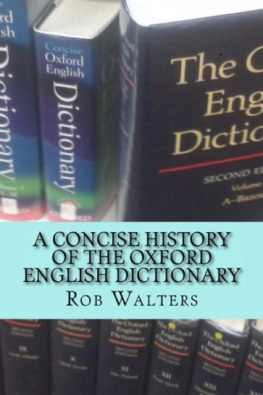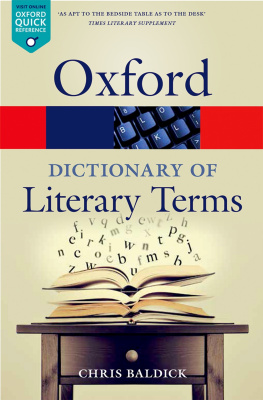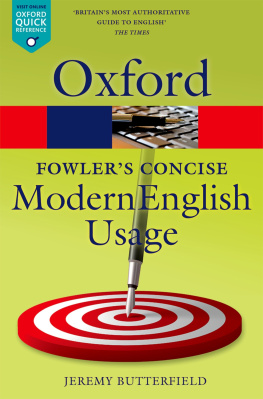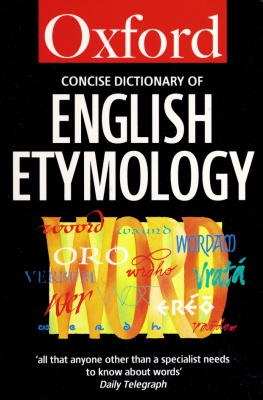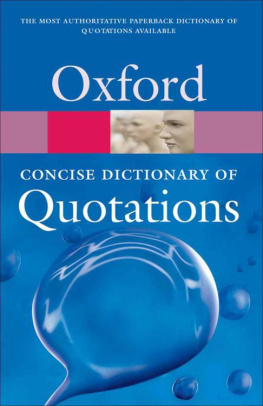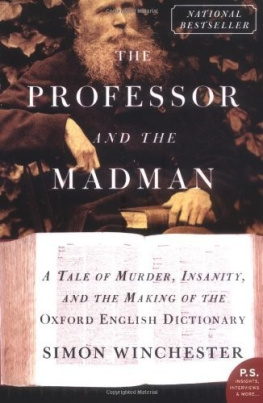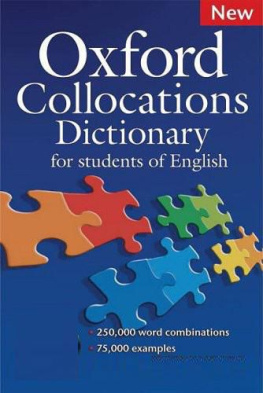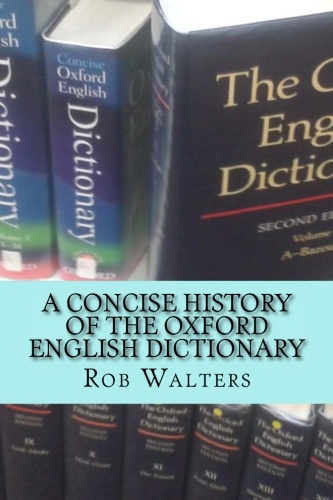
Overview
At a grand party to celebratecompletion of the first edition of the Dictionary the PrimeMinister of the day called the achievement the greatest enterpriseof its kind in history. The Times greeted the secondedition as The greatest work in dictionary making everundertaken. And The New York Times topped that with Thegigantic total picture of the English language...an epicachievement.
Wow! So whats the story? Howdid it start? What preceded it? Who did the work? Why did it takeso long? How did Oxford get involved? And why is the work neverfinished?
A ConciseHistory of the Oxford English Dictionary
by Rob Walters
Early Timeline
1857 Richard Trench lecture toPhilological Society
1859 Herbert Coleridge becameeditor of the NED
1861 Coleridge died. FrederickFurnivall took over.
1872 Furnivall reported noprogress
1878 James Murray interviewed atOxford
1879 Contracts exchanged. Murrayeditor
1884 A-Ant published. Jowettintervention
1885 James Murray moved toOxford
1885 Gell appointed Secretary tothe Delegates
1887 Henry Bradley made jointeditor
1888 Vol 1 published A-Byzen
1896 Press rose in support ofMurray. Gell dismissed
1897 Vol 3 dedicated toVictoria. Dinner at Queens
1901 William Craigie joined asthird editor.
1914 Charles Onions joined asfourth editor.
1915 James Murray died. HenryBradley senior editor
A ConciseHistory of the Oxford English Dictionary
Edition 1
Ebook Version 10
Smashwords Version
Copyright Rob Walters 2016
The moral right of Rob Waltersto be identified as the author of this work has been asserted byhim in accordance with the Copyright, Designs and Patents Act of1988.
All rights reserved. No part ofthis publication may be reproduced or stored in a retrieval systemor transmitted in any form or by any means, electronic, mechanical,photocopying, recording or otherwise, without the prior permissionof the copyright holder.
Published by: Satin
www.robsbookshop.com
Email: rob@satin.co.uk
Chapter 1: Introduction
This book is written from aparticular perspective. I live in Oxford and work there, it is mychosen base and in writing this book my radar has been somewhattuned to Oxford reflections. On balance I think that this mayenhance the story and hope that you agree.
Prior to doing the necessaryresearch I had a grudging respect for the great achievement thatthe Oxford EnglishDictionary (OED) represents. Oncompletion I am filled with admiration, admiration for thescholarly devotion shown by the key players and also for theirsheer doggedness. There have been so many crises over thecentury-and-a-half of development that could so easily havescotched the entire project, and so many heroes that kept thewheels turning.
In some ways the history of theOED seems a dull subject: words, words and yet more words. But thisstory is not just about words, it is also about the people who madethe whole thing happen and it has been a surprise to me just howhuman, how lively, how characterful, and how resourceful thecompilers of dictionaries turned out to be. And most of thosetaking part were volunteers: the OED could be regarded as Wikipediacreated via the postal system.
Many accounts of the evolutionof dictionaries and some dictionaries themselves begin with adescription of English and its history. In this concise history ofthe OED I will take that as read, or unnecessary. If you feel theneed then I recommend the first chapter of Simon Winchesters book[1]. I have though included some historical background to thecommencement of the great task described here: the compilation of adictionary that fully defines English.
This is a concise history there is much more to know. If this little book has whetted yourappetite then take a look at the bibliography below: I have listedsome excellent books and web sites there.
Thanks to friends for supportand encouragement in the preparation of this book, especially PeterAshby and Angie Driscoll for their comments and corrections andBeverley McCullock, the OED archivist, for her useful suggestionsand help with illustrations.
For quick reference, I haveincluded timelines, so, if you wonder where you are in the story atany time just go to the start or the end of the book.
Rob Walters, 2015
www.robsbookshop.com
Chapter 2: EarlyDictionaries
John of Garland was a student atOxford in the 13th century, later becoming a teacher atthe University of Paris where Oxfords Roger Bacon attended alecture by him. He is the author of a short work in Latin andFrench entitled Dictionarius which was published around theyear 1220 and is thought to be the origin of the word dictionary.If so his book gave birth to many compilations of which theOxford English Dictionary is surely the most famous.
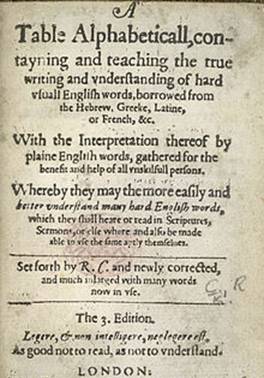
Robert Cawdrey was aschoolteacher turned rector who, for violation of church rules, wassacked by his bishop and returned to teaching. He then wrote whatis believed to be the earliest dictionary of English words definedin English under the shortened title A Table Alphabeticall.This was published in 1604 and contained about 2500 hard words. Theonly surviving copy of the first edition of Cawdreys book is heldin the Bodleian Library, Oxford and the library has published amodern reprint of it. Interestingly the original dictionary waspublished just two years after the Bodleian first opened in1602.
Thomas Blount was born in 1618and produced his dictionary entitled Glossographia in 1656.This was much bigger than Cawdreys effort in that it listed 11,000words derived from sources which included books and words used in shops and drinking houses. He maywell have been the first dictionary maker to detail the origin ofthe words that he defined.
Other dictionaries were tofollow; in fact Blount spent much of his life in pitched battlewith Edward Phillips claiming that Phillips New World ofWords included copies of many of his own definitions - and thatthose Phillips did not copy were inaccurate. Inevitably, suchdisputes are common in the world of dictionary making whereoriginality is not the order of the day. Many of the other earlydictionaries specialised in some area of human activity and thenext example is of this type, selected particularly for its linkswith Oxford.
Chapter 3: Heads CantingDictionary
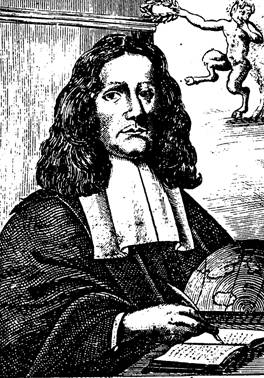
Richard Head was born in 1637 ofEnglish parents in Ireland. He came to Oxford to study at New InnHall in the 1650s. Founded in 1476 and one of many halls thenexisting in Oxford, New Inn Hall became known for producing legalscholars including Sir Daniel Donne who, in 1604, became one of thefirst MPs for Oxford University. During the Civil War the Hall wasused as the royal mint and later was taken over by Balliol Collegewhich sold the buildings and land to the City Council. The councilbuilt a new Central School for Girls there and that school nowforms part of St Peters College.
Lacking resources Head, likeSamuel Johnson (see later), did not complete his studies at Oxford,but went on to lead an interesting life as a bookseller, vagrantand author though not all at the same time.
Next page
